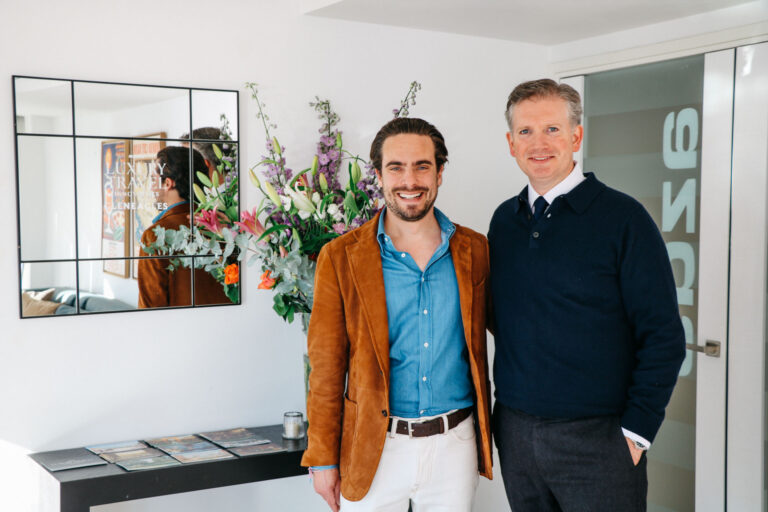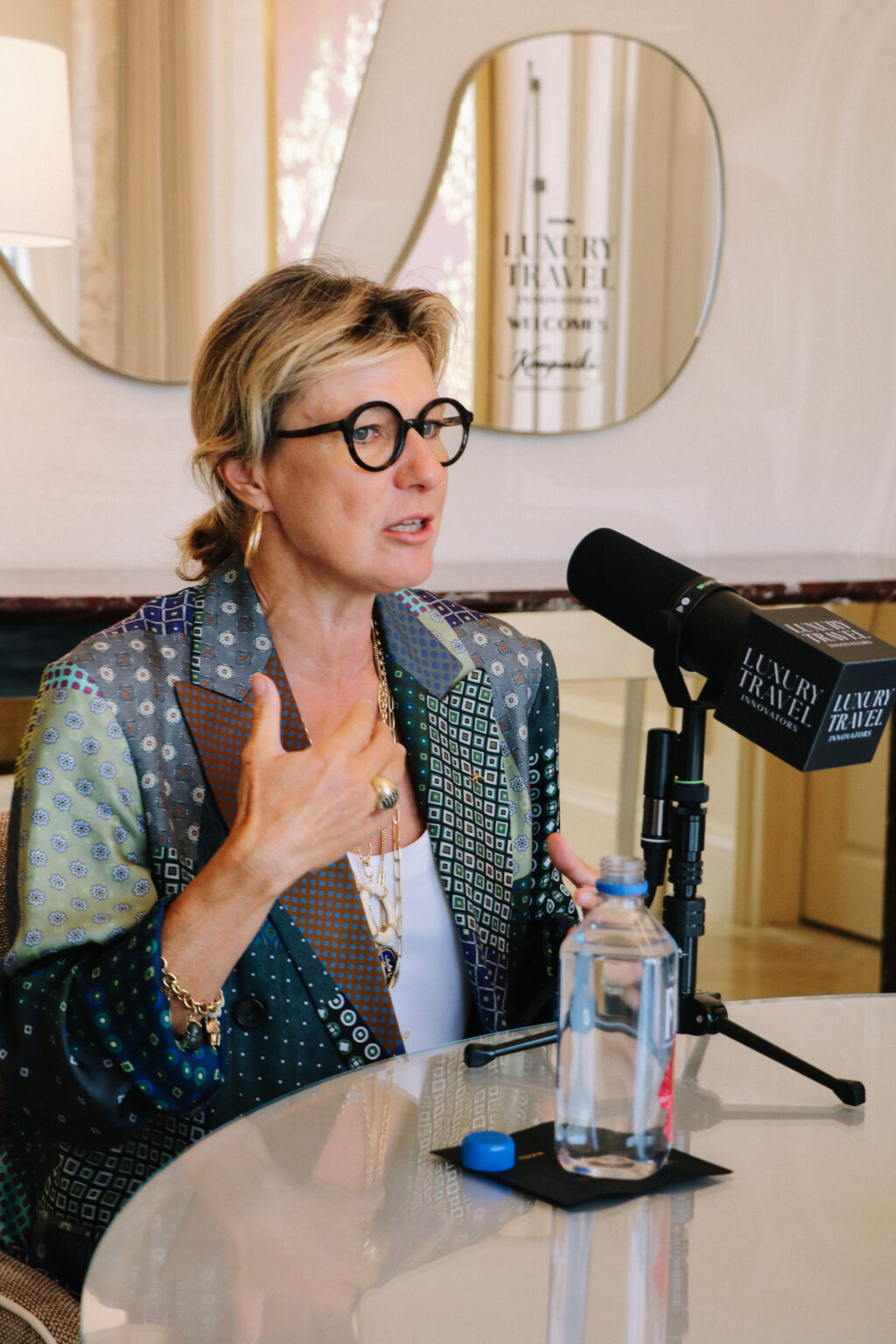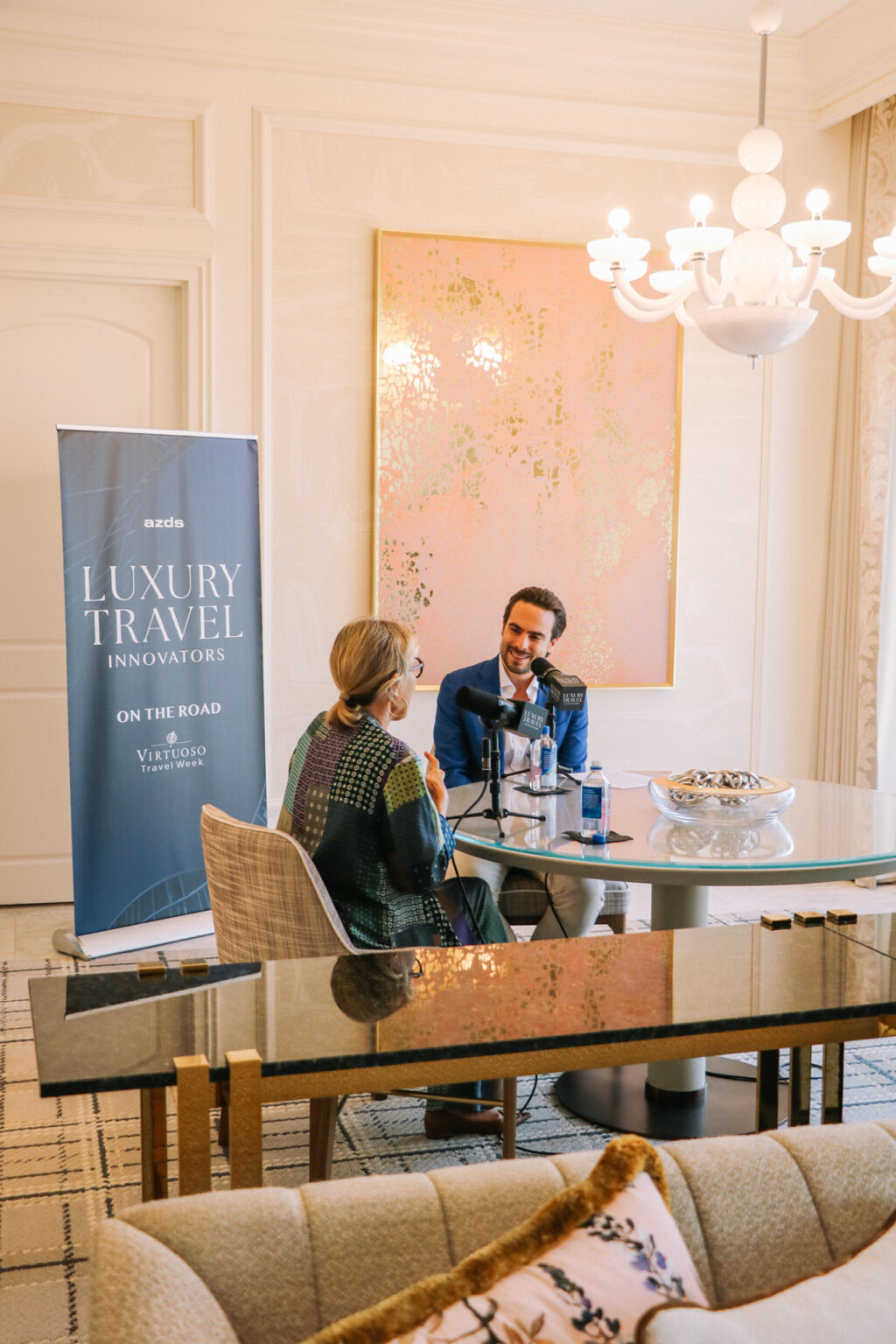
Podcast
In the midst of Virtuoso Travel Week, I had the pleasure of being joined by Barbara Muckermann, CEO of Kempinski Hotels, for a conversation about the historical significance of the company, Kempinski’s approach to optimizing digital experiences for the consumer and the AI bot and how creating desire is really the essence (and challenge!) of luxury travel.
Beginning with humble roots as a Berlin-based wine merchant back in 1897, Kempinski is often thought of as the industry’s best kept secret. Eventually opening the first resort in the world, the company can also lay claim to having the first hotel with a pool and the first to combine entertainment with dining. Today, Kempinski comprises 75 properties around the world in 38 countries, and is the luxury leader in China, Europe and the Middle East (with hopes to expand into the United States soon). Recently, the brand has tasked historians to uncover its roots, and the findings have been truly unique, with ties to the likes of Billy Wilder and Liza Minnelli. The goal was to understand how the DNA of innovation and hospitality are relevant for today’s consumers. Those findings led to the belief that Kempinski is all about surprise and delight.
“Everything that Kempinski embodies means adding a level of pleasure to each step of the guest experience. It’s not just food, but it’s food with a show. It’s not just lunch, but it’s lunch with a glass of wine. It’s not just a glass of wine, but a glass of wine with an oyster.”
As the first female CEO in the company’s history, Barbara began her early career in PR, before making a splash in the luxury cruise industry with two stints at Royal Caribbean Cruises (formally Silver Sea Cruises, credited with essentially inventing luxury at sea and luxury expeditions). Barbara had the privilege of working for Loro Piana, and while fashion is different from travel, she believes that she learned the essence of luxury by working with such a visionary creator. It’s all about creating desire. In fashion, she believes doing so is fairly easy. You become luxury by wearing luxury—all you need is to convince a buyer to enter a store and the incredible cashmere garment will sell itself. In travel, the ladder to desire is more of a future-focused strategy. With 50% of sales in hotels happening in the final two weeks leading up to the guest’s trip, the funnel towards profitability and brand allegiance is much more long-term.
Kempinski Hotels approaches hotel management a bit differently as the owners, operators/managers, and the owner-operators. Barbara’s approach is to shift the focus more towards an owner’s mentality. From her perspective, properties must have a strong point of view on luxury in order to be successful.


The advice Barbara gives to young women that are coming up in the hospitality industry and have goals to be in leadership is to leverage the fact that they are women and use what can be a perceived weakness as a strength. She considers one of her strongest advantages as having blonde hair and blue eyes—while others may come to the table with preconceived notions about intelligence, she’s gained the competitive edge.
Two competitors she respects the most are Rosewood and Aman, both for highlighting the authenticity of their destinations (giving guests a true sense of place), and for having highly unique business propositions. In order to have space in the consumer world, you need to have something to say, and both of those brands do it beautifully.
Kempinski Royal Residence at Nymphenburg Munich is a newly signed property in the portfolio that really embodies the future goals of the company. It cements Kempinski as the top German brand and imbues gravitas and mystique, blending history with innovation. Prince Leopold Prinz con Bayern of Bavaria entrusted Kempinski to manage his private residency, which is in the park of Nymphenburg (considered the Versailles of Munich). It’s the only hotel in the world where a chandelier, composed of ostrich feathers, is changed for every guest—an example of luxury in the truest sense of the word.
Shifting the conversation towards digital experiences, Barbara shared how this is an area the company wants to invest more in, ideally figuring out how to efficiently serve AI bots (which make up about 30% of website visits) alongside optimizing enhancements for the consumer. Utilizing travel advisors is a crucial component of booking luxury, as they bring their relationships with high net worth individuals and expertise in understanding what clients want. The Virtuoso travel advisor network specifically is a critical relationship for Kempinski, and they see those relationships grow in the double digits each year following Virtuoso Travel Week.
Success, for Barbara, is defined as regaining Kempinski’s rightful place as the leader of luxury hospitality. Today, the brand is punching below its weight, but there’s a clear trajectory towards future industry dominance. Each hotel is markedly different, and all are delivering the best authentic experience in their respective destinations. And the brand continues to expand, with important offices in Dubai—exactly the kind of place Barbara wants to be with the kind of energy, investment and innovation occurring in the area.
“Let’s remember that luxury hospitality was invented by Kempinski.”
To wrap up our conversation, I asked Barbara our signature LTI rapid fire questions. For personal travel, she hopes to return to Bhutan, calling it the country of happiness. When reminiscing on the glamour of past travel, she misses the dignity, specifically when going through airport security. Looking ahead, the innovation she believes is needed is technology that removes friction throughout the travel journey. Finding a way to use tech in the back of house will empower employees to focus more on human connection. Because at the end of the day, this is a people business.
Thank you, Barbara, for joining me on this episode of Luxury Travel Innovators, available to listen to and watch on Spotify, Apple Podcasts and Youtube.